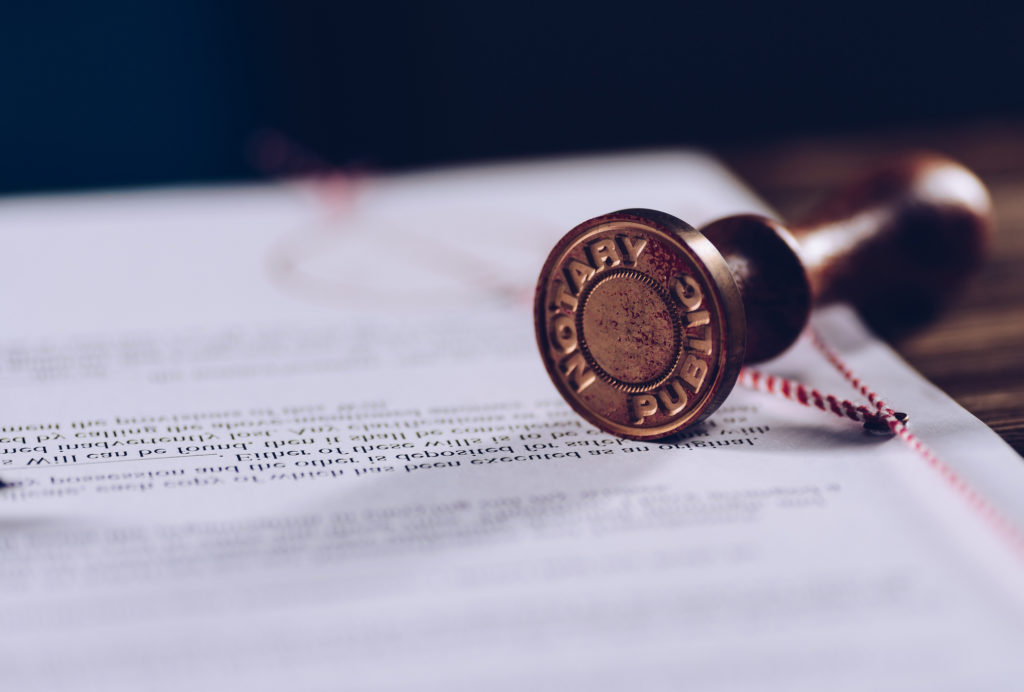Understanding Apostille: Simplifying International File Legalization
Understanding Apostille: Simplifying International File Legalization
Blog Article
Demystifying Notarial Work: Streamlining the Function and Significance of Notaries
Their role, frequently shrouded in secret for numerous, carries significant weight in ensuring the validity and stability of vital papers. By unwinding the complexities surrounding notarial techniques and losing light on the value of their acts, a clearer understanding emerges of the essential function notaries play in supporting the fabric of lawful and legal contracts.
The History of Notarial Job
Exactly how did notarial work advance gradually to become an integral component of legal and company purchases? The history of notarial work go back to old people, where scribes played a crucial duty in recording essential information and verifying documents. As societies proceeded, the requirement for a more formalized system to make sure the validity of arrangements arose. This brought about the development of notaries, people appointed by the state to function as impartial witnesses in lawful issues.
During the Middle Ages, notaries got prominence in Europe, with their functions broadening to consist of composing lawful documents, accrediting trademarks, and maintaining documents. The increase of global trade even more stressed the importance of notarial job in confirming agreements and arrangements across boundaries.
In the modern era, notaries continue to play a crucial function in lawful and service purchases by verifying identities, verifying the authenticity of files, and protecting against fraud. Their role in accrediting the credibility of contracts adds a layer of protection and depend the ever-evolving landscape of commerce and law.

Duties and Obligations of Notaries
Notaries play an important duty in confirming the authenticity of documents and the identity of signatures. One of their primary duties is to witness the signing of vital files, such as wills, deeds, and agreements, to guarantee that all celebrations are entering into contracts knowingly and willingly.
In addition, notaries are tasked with providing affirmations and vows, which are vital in lawful proceedings and the execution of sworn statements. They license copies of original documents, supplying guarantee to establishments that the copies are true reproductions of the originals. Notaries must maintain exact records of all transactions they look after to guarantee openness and responsibility. Generally, the obligations and responsibilities of notaries are necessary in safeguarding the integrity and legality of different files and deals.
Notarial Certificates and Signatures
Exemplifying meticulous focus to detail, notarial certificates and signatures act as essential elements in confirming the credibility of legal documents. Notarial certificates normally consist of important information such as the day of registration, the names of the signatories, a summary of the paper, and the notary's main seal. These certificates provide a clear document of the notarial act, making certain that the document can be conveniently recognized and mapped back to the notary who oversaw the procedure.
Signatures play have a peek at this site a crucial function in notarial work, as they indicate the contract and authorization of the celebrations involved. Notaries very carefully witness the signing of records to confirm the identification of the notaries and validate that they are signing of their very own totally free will. By fastening their main seal and signature to the paper, notaries certify that the needed procedures have been adhered to and that the paper is enforceable and legitimate.
In essence, notarial certificates and trademarks are the characteristic of authenticity in lawful purchases, offering guarantee to all parties included that the records are genuine and binding.
Relevance of Notarial Acts

Registration Refine Clarified
The registration process typically starts with the specific providing the file to a notary public. Once the identification is verified, the notary ensures that the specific signing the record does so willingly and without any browbeating.

Verdict

Notarial certifications normally have essential info such as the day of registration, the names of the signatories, a description of the file, and the notary's official seal. These certifications the original source give a clear document of the notarial act, ensuring that the file can be quickly determined and mapped you can look here back to the notary that looked after the procedure.
By fastening their main seal and trademark to the document, notaries certify that the required procedures have been followed and that the file is enforceable and valid.
By verifying the identification of the signatories, verifying their willingness to enter into the arrangement, and accrediting the day and place of the signing, notaries play an important function in promoting the legitimacy of lawful papers.After the paper is signed, the notary will affix their official seal or stamp onto the record.
Report this page